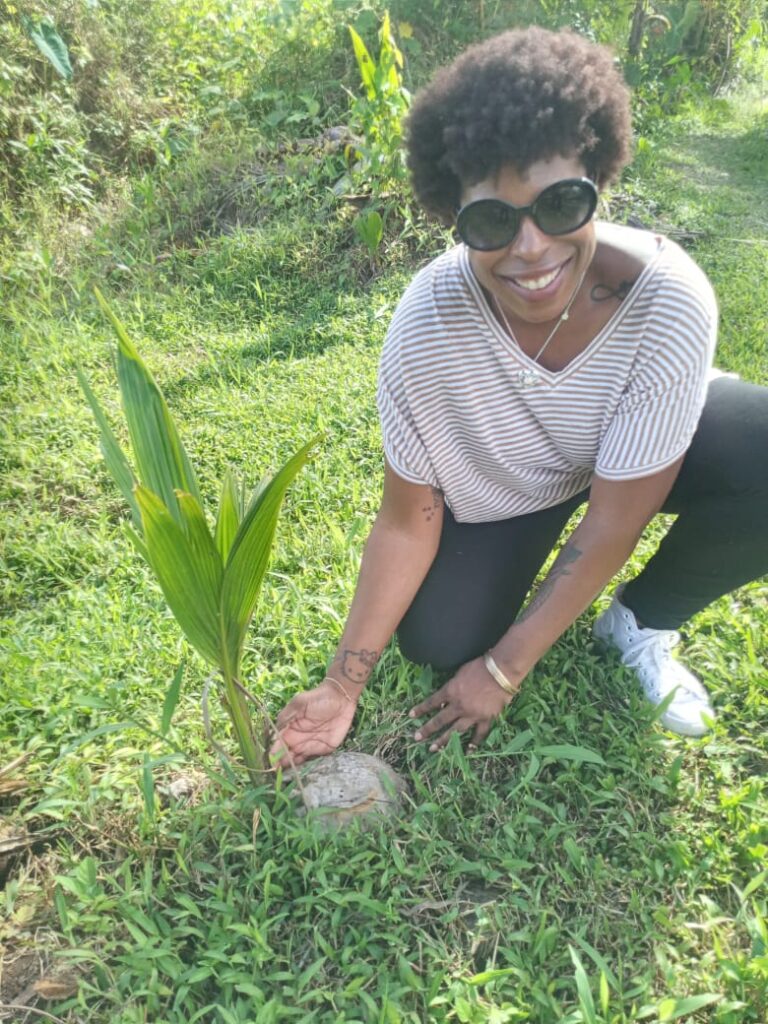Transforming Agriculture: Unleashing the Potential of Women Agriculturalists
By: Elena Seeley, Content Director at Food Tank
Through her consulting work and foundation, Mercedes Diane Griffin Forbes is working to empower women agriculturalists and drive sustainable development.
“For a lot of the world’s food production, it is actually being done by women,” Forbes tells Food Tank. But, she continues, this workoften undervalued.
Forbes engages with communities around the world to spotlight women’s agricultural contributions and help them formalize policies that support gender equity.
“I’m here in Ecuador, where a lot of the women do the work in the coffee fields using machetes and they’re weeding by hand,” Forbes says. “That is very arduous, and can be quite dangerous…However whenever I ask people in the communities that I’m in what work they consider to be the most important work or the most high-risk work, they will often say ‘the tasks that men do.’”
Forbes doesn’t believe that communities are “conscientiously operating from a perspective of not valuing women.” Rather, she understands the discrepancies to be “based on a lot of deep, cultural, traditional practices.”
As she carries out her work, Forbes tries to encourage a mindset shift because, she tells Food Tank, “when they are given the opportunity to really think through, they’re like ‘yes, of course we’re all equal. We all need to be respecting one another.’”
Forbes also conducts gender mainstreaming trainings, which she explains are focused on “making sure that you are making the necessary accommodations within your organizational structure to ensure gender equity.”
While spending time with cacao farmers in Ecuador, Forbes worked with the community to produce a gender policy in their bylaws. She explains that the group already had a policy to ensure representation of Indigenous peoples, but were lacking guidance focused on women. “It’s important to formalize this, and it’s important to develop practices around this formalization,” Forbes tells Food Tank.
In addition to her consulting work, Forbes also works to empower women through the Mercedes Parra Foundation for Women and Girls. It’s “a small organization,” Forbes says, “but we really try to focus on areas where we feel we can have the greatest impact, so primarily dealing with women and girls who are in resource poor areas, helping them to have better economic education and political outcomes.”
Recently, Forbes has been working with two women in North Carolina to run for leadership positions. “So many women, particularly women of color, don’t even consider running for office,” she says. “They just automatically see it as something that’s so far outside of their reach. And I think a big part of it is just a lack of mentorship.”
Forbes goes on to explain that she works with these women to “overcome some of the psychological hurdles they may be facing and really help them to hone the skills they have, and help them to see why it is that they do have a voice and how they can use that voice to promote change.”
Listen to the full conversation with Mercedes Diane Griffin Forbes on “Food Talk with Dani Nierenberg” to hear more about Forbes’ consulting work with women agriculturalists, why gender-appropriate technologies are so important, and how Forbes uses her platform DG Speaks to share her story and serve as a role model for others.”



